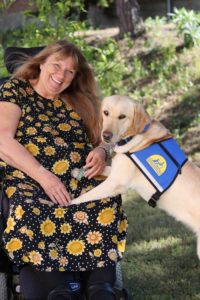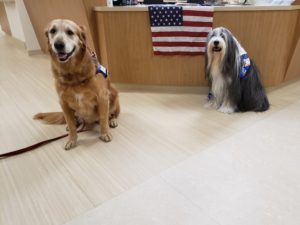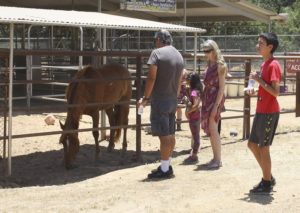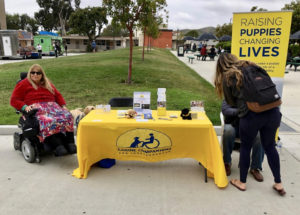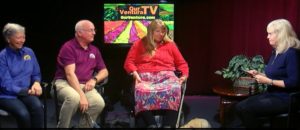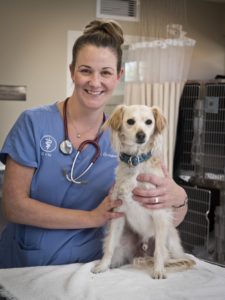 ∙SPAN Thrift Store is providing $10 spays and neuters for low income cat and dog friends.
∙SPAN Thrift Store is providing $10 spays and neuters for low income cat and dog friends.
The clinic will take place in the SPAN Thrift Store parking lot 110 N. Olive St. (behind Vons on Main) on Thursday, July 25th.
Please call to schedule an appointment (805) 584-3823.
∙Official dog of Israel. The breed has avoided extinction by surviving in the Negev desert for thousands of years. On Monday ,July 22, Wings of Rescue, a group that transfers dogs to be rescued, will transport
a group of Canaan dogs to LAX (a 15-hour flight).
Canine Adoption And Rescue League (CARL), a no kill dog rescue serving Ventura Co since 1996 will partner with a transporter to pick up the dogs from LAX. They will then bring them to CARL’s kennel/sanctuary in Santa Paula.
CARL will then exercise, clean, water and feed them. And clean their transport crates.
The dogs will then be re- crated taken to Camarillo airport, board a jet and be transported to
Washington State for adoption.
The rumor that the dogs were wearing yamaka’s turned out to be fake news.
∙Federal health officials are warning about a salmonella outbreak that has been linked to popular dog treats. According to the CDC, 45 people in 13 states have become ill after coming in contact with pig ear dog treats.
No deaths have been reported but a dozen people have been hospitalized.
Officials say a common supplier has not yet been identified.
Experts say make sure you wash your hands right after you handle pet food or treats and to store them away from human food.
Call your vet if your dog starts showing the symptoms of salmonella infection which include having diarrhea that may contain blood or mucus or vomiting.
∙Of all the cosmic events, solar eclipses prompt perhaps the biggest change in animal behavior. Animals that are active during the day head back to their nighttime homes while nocturnal animals think they’ve overslept. Around the world, unusual incidences of animal behavior are reported while everyone else is watching the eclipse.
Some spider species begin to break down their webs during an eclipse, as they typically do at the end of the day. Once the eclipse has passed, they begin to rebuild them again, possibly complaining about the lack of rest in between.
Fish and birds that are active during the day head for their nighttime resting places, while nocturnal bats are tricked by the sudden darkness.
Hippos in Zimbabwe were observed leaving their rivers during an eclipse, heading towards their nocturnal feeding grounds on dry land. Midway through their departure, the eclipse passed, daylight returned, and the hippos returned. The animals appeared agitated and stressed following the eclipse for the remainder of the day.
∙Heat is not the only danger to be aware of during warmer months (even in Ventura).
Rattlesnakes have bitten dogs in the past as they look for water or a cool spot. But rattlesnakes are not the only creature pets should avoid.
If dog owners are going into the woods with their pets, they should remain vigilant of ticks.
Ticks are able to go from animals to humans.
Foxtails can also pose problems for dogs, including infection if it makes its way into the fur and skin.
∙A Santa Clarita veterinarian is naming a few reasons why she believes a potential pet parent should consider adopting a senior pet from a shelter or rescue organization.
Pets are viewed as seniors after 7 years old, and depending on their size and breed, often have a lot of life left to live, not to mention the love a newly adopted senior pet has to give to someone willing to look past their age and offer them a second chance at a happy life.
Cats and smaller dogs like chihuahuas can potentially reach 16-17 years old and beyond, and 60- to 80-pound dogs like Labradors or golden retrievers can potentially reach 12-14 years old and beyond, according to Dr. Jaimie Ronchetto of Cinema Veterinary Centre.
“I do think that senior dogs are harder to adopt out because people typically want a young animal, so sometimes they could be overlooked,” Ronchetto said. “But in that amount of time that you get with them, there’s so much love and so much that you can get out of the relationship, and just giving them a home for their golden years where they can feel safe and loved is important.”
Ronchetto noted that senior pets are often already trained, eliminating the need for extensive obedience and potty training necessary with young pets, and are usually calmer in general as well.
“Senior pets do make really great companions, usually because they’re settled, they’re happy typically being just the house dog, lap dogs,” Ronchetto said. “They don’t need typically a lot of exercise or energy expended. They’re happy to just be there and be loved on.”
Senior pets end up in shelters for a variety of reasons, and may or may not have medical issues. The most common medical problem seen in senior pets is arthritis, which Ronchetto noted can be maintained with anything from supplements to pain relief medications.
“There’s lots of things that we can do for arthritis now,” she said. “There’s lots of things out there to make them comfortable and help with their mobility.”
While all ages of dogs and cats are euthanized in shelters due to overcrowding, Ronchetto noted that “a lot” of senior pets fall into this category as a result of being consistently overlooked.
Ronchetto believes that the dogs and cats who do get adopted from shelters have even more gratitude and love for their new families.
“I think that they know that they’ve been saved,” she said.
